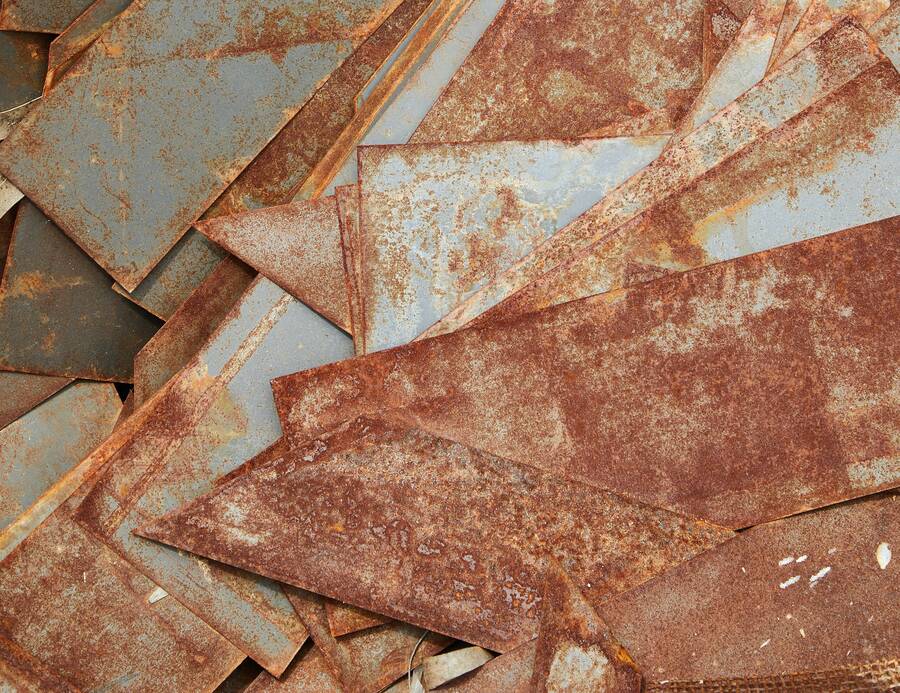

JAN 11, 2023
Before getting into what rusted metal is and if it's recyclable, you first need to know the basics of rust — a layer of ferric oxide formed on the surface of some metals when they come into long-term contact with oxygen and water or other hydroxides. RCM Recycling has instructions for removing rust and more! Scrap metal recycling can help your pocket if you need extra funds. You just need to know how to proceed. Here you will learn precisely how metals to rust and what causes them to rust.
To understand more about how to recycle your rusty metal and what you can do with it once it's been recycled, let's first look at what rust is: Rust is the common term for iron oxide, which is a reddish brown coating on metal surfaces. Rust forms when oxygen reacts with iron, creating compounds that appear as reddish-brown stains.
Yes! Rusted metal is an excellent source of recycled material. It can be recycled at your local recycling center or by some scrap yards, but it's essential to ensure that the metal is clean and free of paint, grease, and oil before you do so.
Recycling is a process that reduces the amount of waste that ends up in landfills. Recycling is also a way to save money and reduce the use of natural resources. The recycling process involves taking unwanted materials and turning them into new products. Many recyclable materials include paper, glass, plastic, and metal.
Rusty metal is one type of material that can be recycled. However, this article will answer your question if rusty metal can be recycled.
Rust is the result of a chemical reaction between iron and water. Removing rust from metal objects is important because it can cause corrosion, harming the metal and possibly leading to more severe problems. You can remove rust from metal in several ways, including using a wire brush, sandpaper, or steel wool.
The easiest way to remove rust from metal is to sand it off with sandpaper or steel wool. If you're trying to remove paint as well, you'll need something coarser — like 80-grit sandpaper — so that you don't damage the underlying metal. Start with an area of your project that doesn't need much work, so you can see how well your method works before moving on to larger areas where time might be more precious.
The best way to remove rust from your rusted metal is using a wire brush or sandpaper. Be careful not to scratch or tear the metal too much when removing rust because this will reduce its value. If you're working with large pieces of rusted metal and don't have access to a wire brush or sandpaper, you can use a hammer and chisel instead.
The old saying, "One man's trash is another man's treasure," aptly applies to recycling rusted metals. There are many uses for scrap metal other than recycling. The rusted metal may be salvaged, repurposed, and turned into something new and valuable. When collected through the proper channels, scrap metals are an asset, not a liability and should be recycled with a scrap metal company.
If you have material that qualifies for scrap, it is well worth contacting a local scrap yard or steel mill. RCM Recycling can help. It is also worth noting that the cost of recycled metal has been dropping with global economic changes and may continue to do so soon.